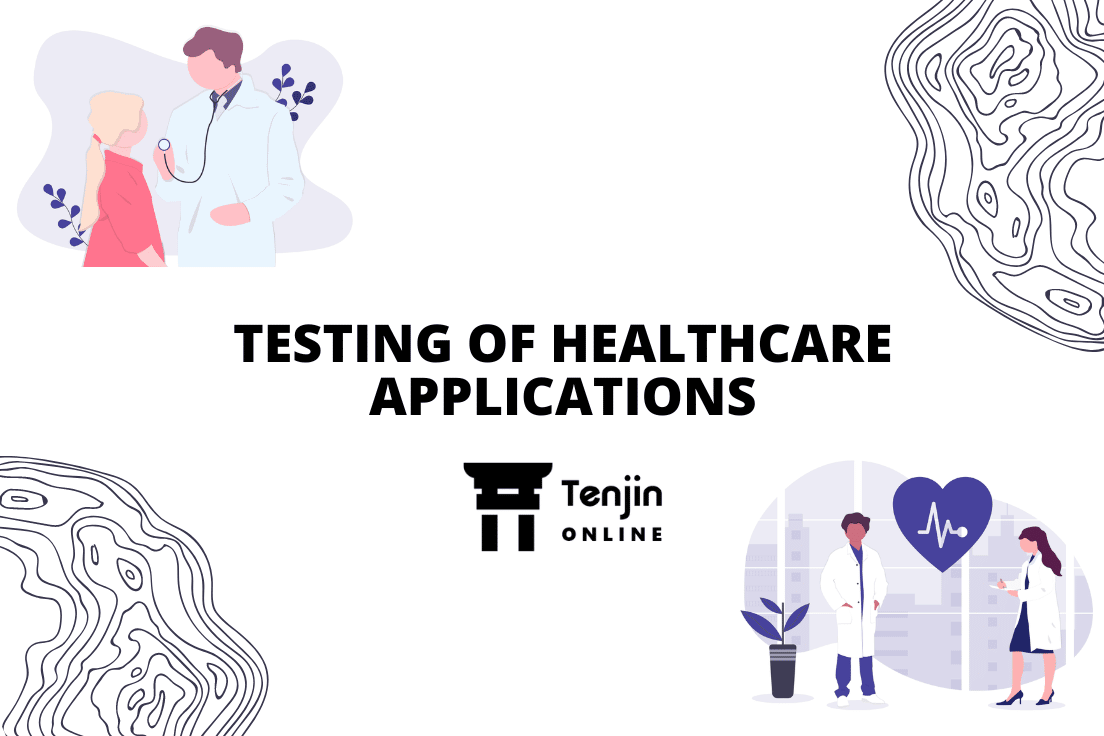
The healthcare industry has witnessed a significant transformation over the past few years with the introduction of new technologies like digitization and automation. The industry is leveraging the power of these technological capabilities to achieve better patient experience. Apps have added comfort at various levels by making appointment booking easy, video consultations available, accessing real-time health monitoring, medicine delivery, diet tracking, records maintenance, etc. To ensure these apps perform as intended, they should be tested efficiently to make sure it is flawlessly working.
Testing is essential for healthcare apps as they are directly associated with the patient’s health, requiring immediate, appropriate, help. Any glitch in the app may affect the health and well-being of the patient, hence, it is of utmost importance to thoroughly test the app before release. Considering the significance of healthcare app testing, it is inferred to improve the test coverage and implement continuous testing for new apps and version upgrades. Let us understand more on healthcare application testing and the important considerations to make while testing them.
Choosing the right tool for healthcare app testing can be a daunting experience, and the wide options available today makes it even worse. However, there are some app testing tools that can give efficient results. Tenjin Online is of the test automation platforms available that can test the complexities of healthcare apps and systems like Electronic Health Records (ERP). It has been tried and tested out on all popular healthcare apps available on Android and iOS devices, and proven successful every time. It is a simple and easy-to-use test automation platform for testing web and mobile apps. It doesn’t require coding/ scripting and runs with minimal human intervention. It is the most efficient and affordable solution you can have.
Why Testing is Essential for Healthcare Apps?
Healthcare applications are created to establish an easy connection between the patient and doctor/ hospital. These apps are tested to eliminate errors and create top-quality apps that will accelerate efficient experience to the users.
The healthcare industry is highly dynamic with continuously changing regulations, collaboration with insurance companies, and advanced software systems implementation. To ensure all these features of the app are working fine, it should be tested thoroughly. Testing is an integral part of the healthcare apps to ensure the quality of the app is uncompromised. App quality is essential to attract new users and retain the existing once.
Benefits of implementing testing for healthcare apps:
- Testing is a must for healthcare apps to ensure smooth functioning without any disruption
- The healthcare industry comprises of enormous, sensitive data. Testing is essential to test the big data and check for its usability, also ensuring complete privacy is maintained.
- Healthcare apps should perform in real-time to access the updated information, hence, testing is performed to check if the information is updated and available in real-time for both the users and the doctor.
- The healthcare sector works in collaboration with insurance companies for bill clearance, hence, the healthcare apps are integrated with third-party to ensure all integrations work as expected.
- Testing healthcare apps is a complex affair; hence, the entire process is automated to eliminate human errors and speed up the process.
Customer Landscape of Healthcare Applications
The customer landscape of healthcare system is diverse, and it is difficult to create flawless usability that caters to this wide demographic. Further, the requirement of the huge user base varies from one another. Some would use the apps to book an appointment, others may need it for nutrition/diet tracking, while some others may require it just to access their reports. Some of the elderly may need it for their condition management or emergency purposes. The app may further need updating from the doctors, insurers, caregivers, administrative staff, and other hospital authorities to offer real-time and added convenience.
The healthcare app should support a comfortable and convenient workflow for easy usability. It takes qualified and skilled testers to understand each role being performed on the app and test it accordingly. Testing should be carried out with all possible scenarios and with different user perspectives, for example:
- The app should be tested from all possible devices like smartphones, desktops, laptops, tablets, and wearable smart devices.
- It should be tested as a patient to check if all the features and functionalities are working like booking, tracking, health monitoring, calls, chats, etc.
- It should be tested as a doctor to check if the appointments, treatment plans, patient history, progress tracking, operation schedules etc., are working as expected.
- It should be tested as an insurer to check the patient’s treatment plan, payments, etc.,
- It should be tested as the hospital administrative staff to ensure the administrative section of the app like appointment tracking, report access, etc., are working as expected.
An efficient testing tool and a team of skilled testers are required to test the above-mentioned complexities of the healthcare apps, Tenjin Online can provide both.
EHR System Testing
Electronic Health Record or EHR system is an electronic system to maintain patients’ medical history over time that include the medical history, problems, progress notes, doctor visits, age, gender, immunization status, discharge summary, lab reports, billing information, etc., Since EHR software deals with confidential and sensitive information of the patients, it requires a different testing approach unlike apps of other categories.
Testing of EHR systems ensures that the quality of the app is improved and offers a great user experience. The following testing practices should be implemented while testing EHR systems:
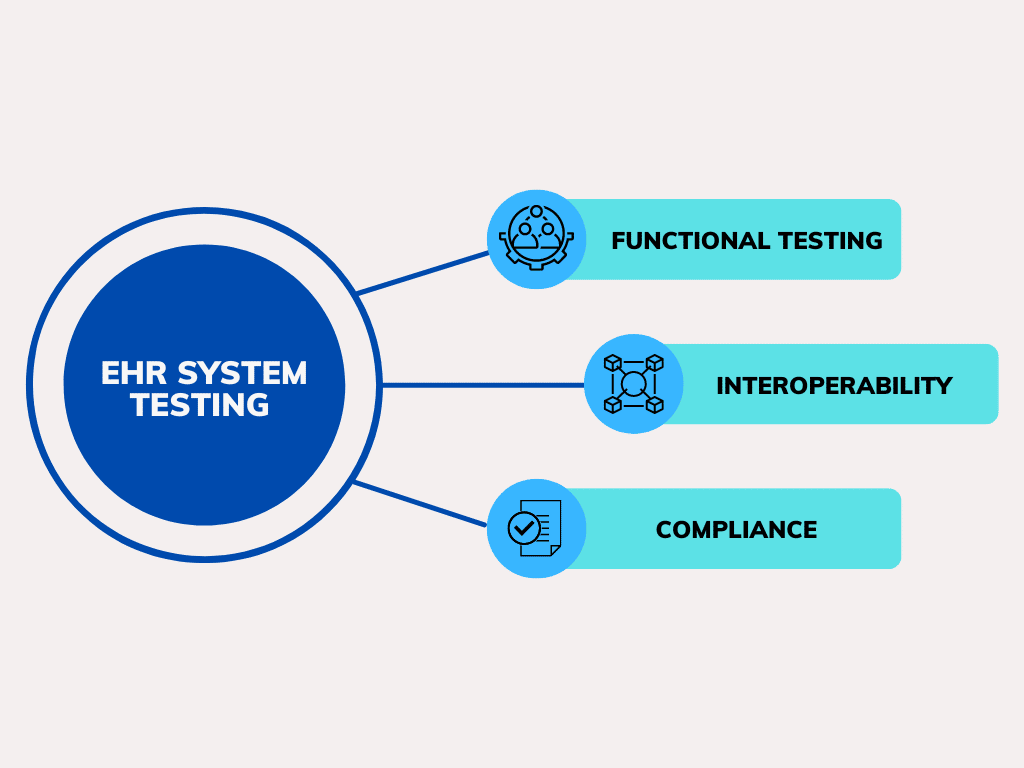
- Functional testing: EHR software includes multiple workflows, hence, testing of the functionality of individual features and their performance in unison should be tested thoroughly. Any functionality error will affect the user experience.
- Interoperability: EHR combines a different system on a single platform, like the patient demographics, laboratory, radiology, hospital records, insurance companies, etc., making it a complex system. Testing should be performed to ensure the app is interoperable and doesn’t disturb the ecosystem.
- Compliance: Data security has no scope of violation due to the sensitive nature of the EHR systems. To safeguard the system, the tester should test for access control, audit control, and ensure the system is compliant with HIPAA (Health Insurance Portability and Accountability Act) Security Rule for technical safeguard.
Challenges in Testing Healthcare Applications
Testing healthcare applications has major challenges associated with it and one should be aware to take necessary steps and resolve them. The primary challenges include:
- Testing healthcare apps requires extensive expertise; finding the right resource can be challenging
- In addition to testing functional and non-functional features, interoperability should be checked which can be challenging
- Testing teams and strategy should be in alignment with the latest regulatory and compliance
- The cost of testing healthcare apps is usually high
- No compromise on the regulatory standards is acceptable as the apps deal with patients’ health and well-being
- Testing should be performed with a proper knowledge on the clinical terms and other medical usage and approach
- Healthcare apps comply with standard medical agencies like Food and Drug Administration (FDA), International Organization for Standardization (ISO), Center for Medicare and Medicaid Innovation (CMMI), etc., hence, testing should be conducted in accordance with these federal agencies
Tenjin Online is backed by an expert team who offer extended support to ensure your app is performing as expected. Further, the test automation platform has already been testing over a wide range of apps to check its behavior and been upgraded over time to improve the performance and efficiency.
Considerations to Make While Testing Healthcare Apps
Here are some of the considerations to make while testing healthcare applications:
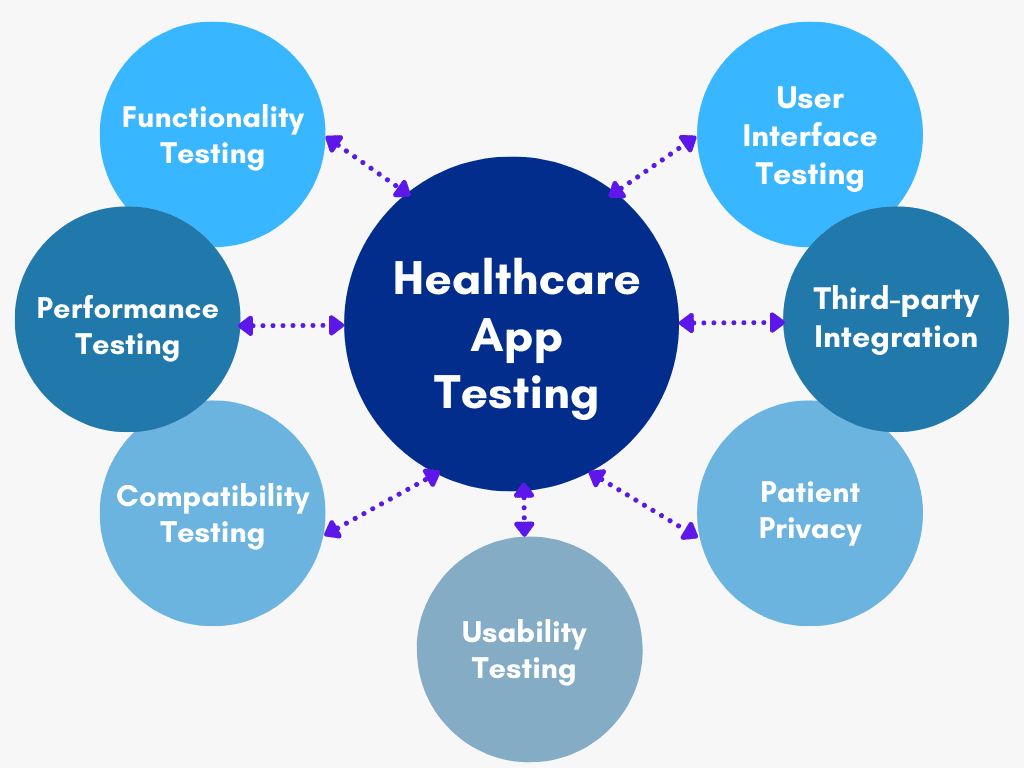
User interface testing: The audience of the healthcare apps are patients who belong to a wider demographics, including a good portion of the elderly crowd who may not be comfortable with technology. Hence, it is important to have a smooth user interface (UI) to offer a great user experience. User interface is the first point of the app’s contact with the user, thereby, one cannot go wrong by creating a glitchy user interface. A thorough and repeated UI testing should be performed to ensure a patient-friendly experience. A good UI also helps doctors with easy patient tracking, maintaining medical history, and much more.
Third-party integration: Healthcare app ecosystem is complex involving integration with other apps. Hence, it is important for it to seamlessly integrate and be compatible with other apps to offer good user experience. Health care apps need integration as one app may not serve the requirements, the need for multiple systems becomes essential to access all information from one platform.
Patient Privacy: Patients’ personal information and medical history is extremely confidential, and any breach can affect the hospital’s reputation leading to negative branding and monetary losses. To avoid compromising of sensitive patient data, it is necessary to test the app for any potential vulnerabilities and safeguarding patient’s privacy.
Usability testing: Usability testing is mandatory to ensure the app’s behavior in the real-world, to be prepared for the possible challenges and have a solution to overcome them.
Compatibility testing: As healthcare apps are critical, it is essential for them to perform flawlessly across all devices, platforms, and browsers. Hence, performing compatibility testing is essential to avoid discrepancies in app’s performance across different platforms.
Performance testing: App should be able to scale and perform well under all kinds of traffic. Real-world traffic is unpredictable which can even lead to app crashes, thereby, to avoid crashes and provide uninterrupted experience, performance testing should be conducted.
Functionality testing: Functionality testing for healthcare apps is a tricky business, which involves testing it from patients, doctors, and insurance providers perspective. The functionality of the app is tested to make sure all the features are working as expected.
Conclusion
Testing of healthcare applications is essential to offer an easy and seamless user experience. From the above information, it is clear that healthcare apps should have a different testing approach from the other apps. Here, the apps should be tested from various perspectives – patients, doctors, hospital staff, and insurance providers to perform 360o testing and never miss any error. Tenjin Online is designed to test the complex functionality and UI of healthcare apps. It has been tested over more than 250 app categories with a good number of healthcare apps. Tenjin Online is a simple, efficient, 5th generation, codeless, self-assisted test automation platform for web, Android, and iOS apps. For further quires or scheduling a demo, write to us – hello@tenjinonline.com.

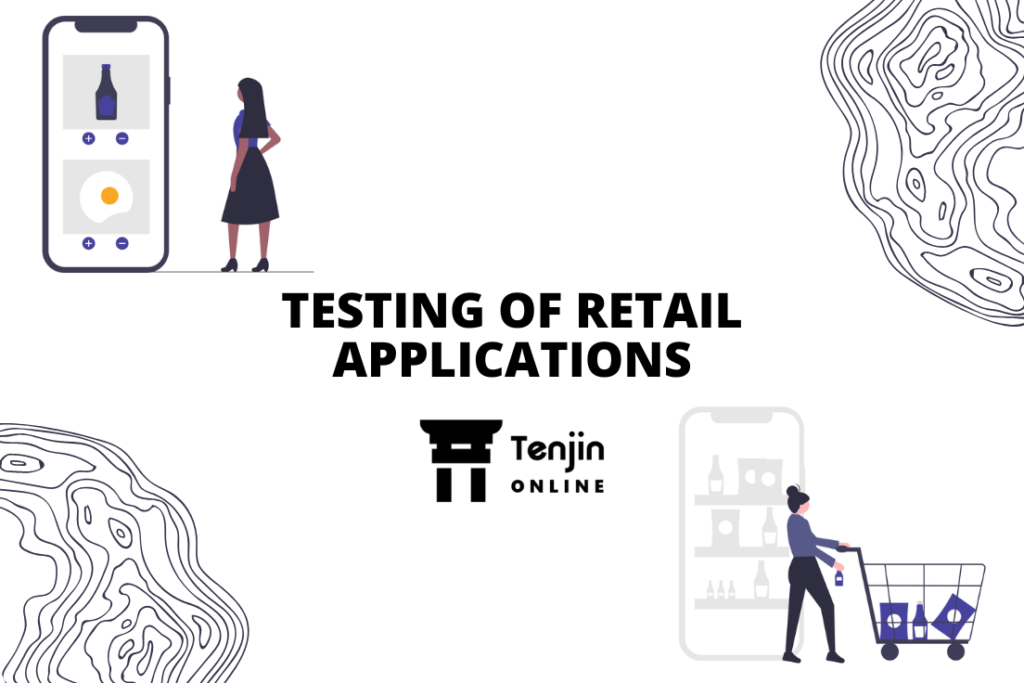
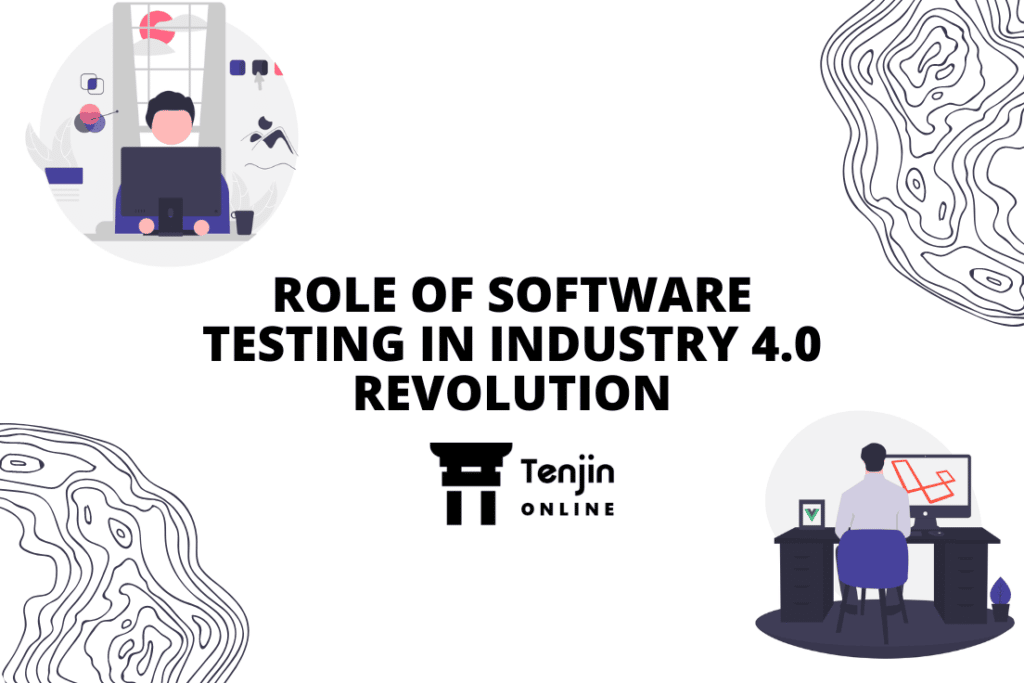
Leave a Reply
You must be logged in to post a comment.